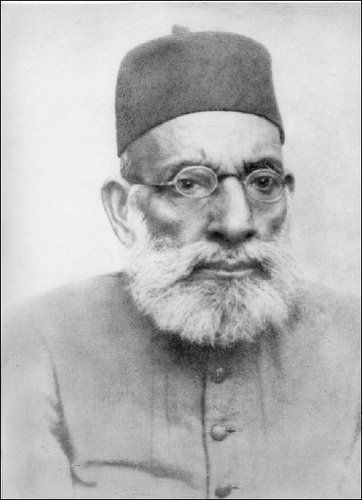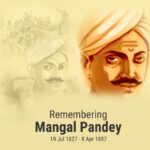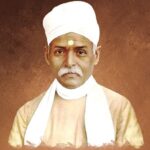Hasrat Mohani: The Visionary Poet and Freedom Fighter Who Shaped India’s Struggle for Independence
Hasrat Mohani, an iconic name in Indian history, was not only a renowned poet but also a freedom fighter who played a pivotal role in the Indian independence movement. Known for his deep love for poetry, his revolutionary spirit, and his unwavering commitment to the cause of India’s freedom, Mohani’s legacy continues to inspire generations. His contributions to both literature and politics make him one of the most important figures in India’s struggle against British colonial rule.
Early Life and Background
Hasrat Mohani was born on January 1, 1875, in the town of Mohan, in present-day Uttar Pradesh, India. His real name was Syed Hussain Rizvi, but he adopted the pen name “Hasrat Mohani,” which later became synonymous with his literary and political work. Mohani hailed from a well-educated family and received his early education at home before joining Aligarh Muslim University, where he further developed his love for literature and poetry.
From a young age, Hasrat Mohani showed promise not only as a poet but also as a person deeply concerned with the social and political issues of his time. His writings often reflected his thoughts on social justice, freedom, and the political situation in India under British rule.
Contribution to Indian Independence Movement
Hasrat Mohani’s involvement in the Indian independence movement began in the early 20th century. He was one of the few prominent figures who combined their love for literature with active participation in the political struggle against colonialism. Mohani was part of the All India Muslim League and was an ardent supporter of the cause of self-rule for India. His contributions to the political sphere went hand in hand with his role as a poet and intellectual.
One of Mohani’s most significant contributions was his involvement in the Khilafat Movement. He was a strong advocate for the protection of the Ottoman Caliphate and was a staunch supporter of the rights of Muslims in India and around the world. His participation in the movement, alongside figures like Mahatma Gandhi, helped create a national wave of resistance to British rule.
Hasrat Mohani’s revolutionary spirit also found expression in his work within the Indian National Congress (INC). He was the first person to propose the slogan “Inquilab Zindabad” (“Long Live the Revolution”), which was later adopted by the Indian freedom movement and became synonymous with the struggle for independence. The slogan is still used today in various forms to signify resistance against oppression.
Arrest and Imprisonment
Hasrat Mohani’s involvement in the Indian independence struggle was not without consequences. His active participation in protests and his vocal criticism of the British government often led to his arrest and imprisonment. In 1921, during the non-cooperation movement, Mohani was arrested for his participation in anti-British activities. Despite facing hardships, he remained committed to the cause and continued to challenge British rule even from prison.
Literary Work and Poetry
Hasrat Mohani’s contribution to Urdu poetry is equally significant. His works, often deeply emotional and socially aware, have earned him a lasting place in the literary canon of India. His poetry reflected his belief in justice, his love for his country, and his commitment to the cause of social change. Mohani is known for his ghazals, which eloquently express his feelings of longing, loss, and hope. His poetry was not just an aesthetic expression; it was also a call to action, urging people to fight for their rights and stand up against injustice.
One of his most famous works is the ghazal “Chupke Chupke Raat Din”, which has been sung by many renowned singers and continues to be beloved by people even today. The ghazal touches on themes of unspoken love and yearning, resonating with listeners across generations.
Facts About Hasrat Mohani
- Pen Name: Hasrat Mohani adopted his pen name after his birthplace, Mohan. The name “Hasrat” means longing or desire, reflecting his poetic expressions.
- Political Involvement: He was a member of the All India Muslim League and played a significant role in advocating for Indian Muslims’ rights.
- “Inquilab Zindabad”: Hasrat Mohani is credited with coining the slogan “Inquilab Zindabad” during the freedom struggle, which later became a rallying cry for India’s independence movement.
- Role in the Khilafat Movement: Mohani was a vocal supporter of the Khilafat Movement, which sought to protect the Ottoman Caliphate, and his involvement brought him closer to other prominent freedom fighters, including Mahatma Gandhi.
- Imprisonment: Mohani was arrested multiple times by the British authorities for his role in the freedom struggle and spent several years in prison.
- Legacy: Hasrat Mohani’s legacy continues through his literary contributions and his role as a political activist. His slogan “Inquilab Zindabad” remains a symbol of resistance against oppression.
Significance of Hasrat Mohani’s Legacy
Hasrat Mohani’s contributions to India’s independence movement were twofold: he was a politician who fought for the rights of his people, and he was a poet who used the power of words to inspire and rally the masses. His slogan “Inquilab Zindabad” became a revolutionary chant, and his active participation in the Khilafat Movement and Indian National Congress helped mobilize millions against British rule.
His poems, many of which focused on themes of nationalism and resistance, resonated deeply with people struggling under British oppression. Through his writing and activism, Mohani left an indelible mark on the political and cultural history of India.
FAQs
1. What is Hasrat Mohani famous for?
Hasrat Mohani is famous for coining the slogan “Inquilab Zindabad” and for his active participation in the Indian independence movement. He was also a renowned Urdu poet.
2. How did Hasrat Mohani contribute to the Khilafat Movement?
Mohani was a strong advocate for the protection of the Ottoman Caliphate, which was under threat from the British after World War I. He played a key role in rallying support for the Khilafat Movement, which sought to protect the Caliphate.
3. What is Hasrat Mohani’s most famous literary work?
His most famous work is the ghazal “Chupke Chupke Raat Din”, a beautiful expression of love and longing, which remains popular even today.
4. How did Hasrat Mohani impact Indian literature?
Hasrat Mohani’s poetry, particularly his ghazals, made a lasting impact on Urdu literature. His poems were not just aesthetically beautiful; they also carried deep social and political messages.










